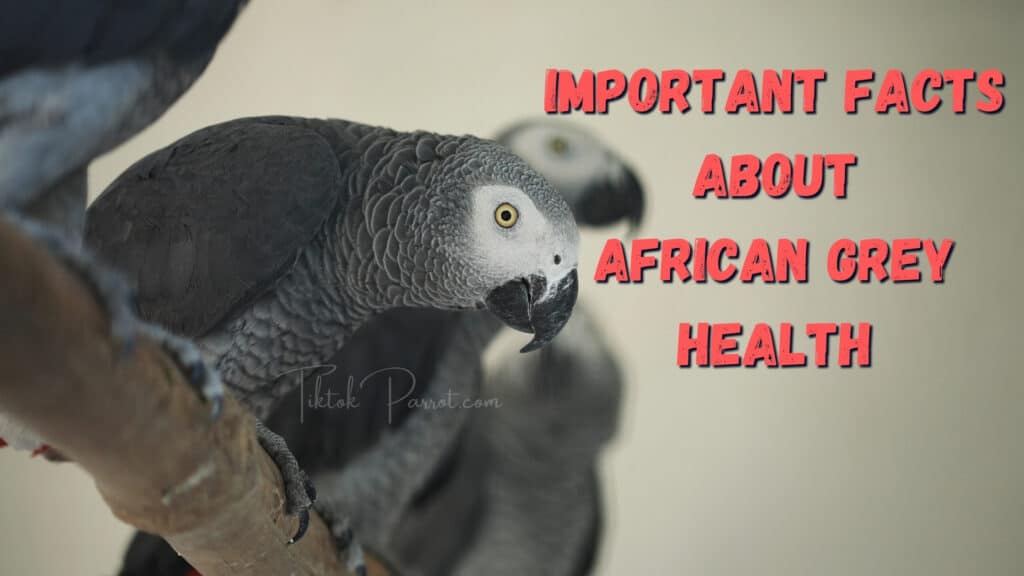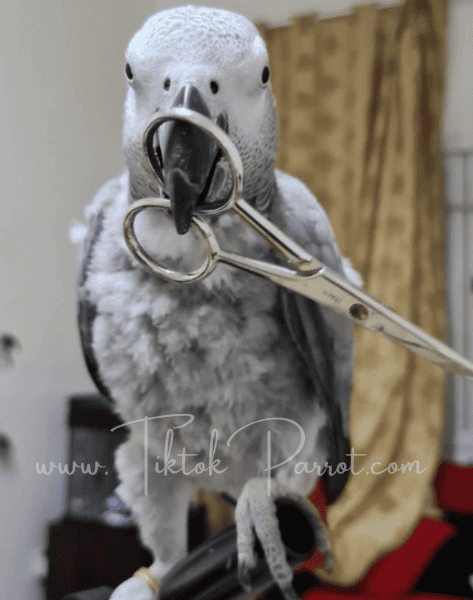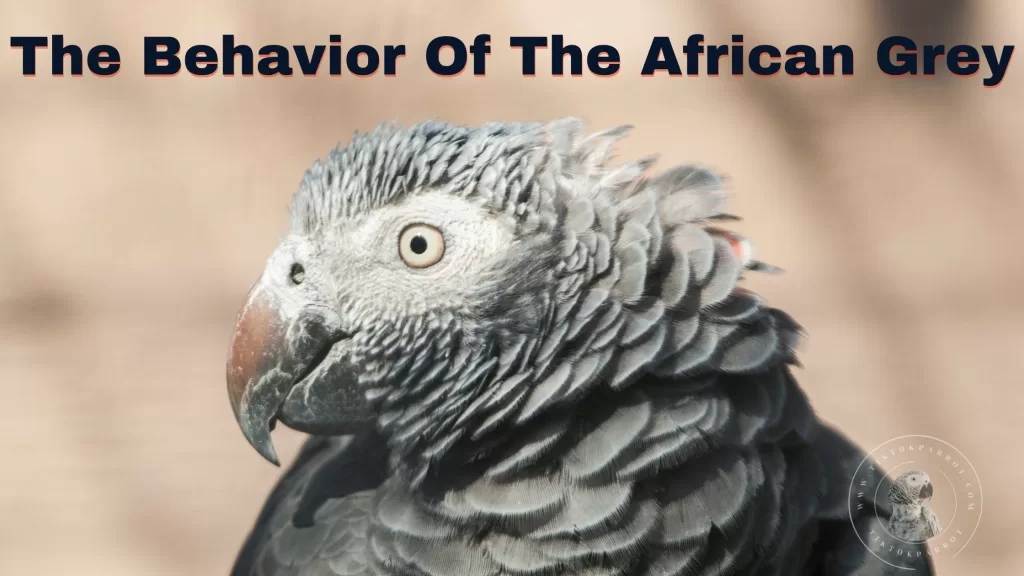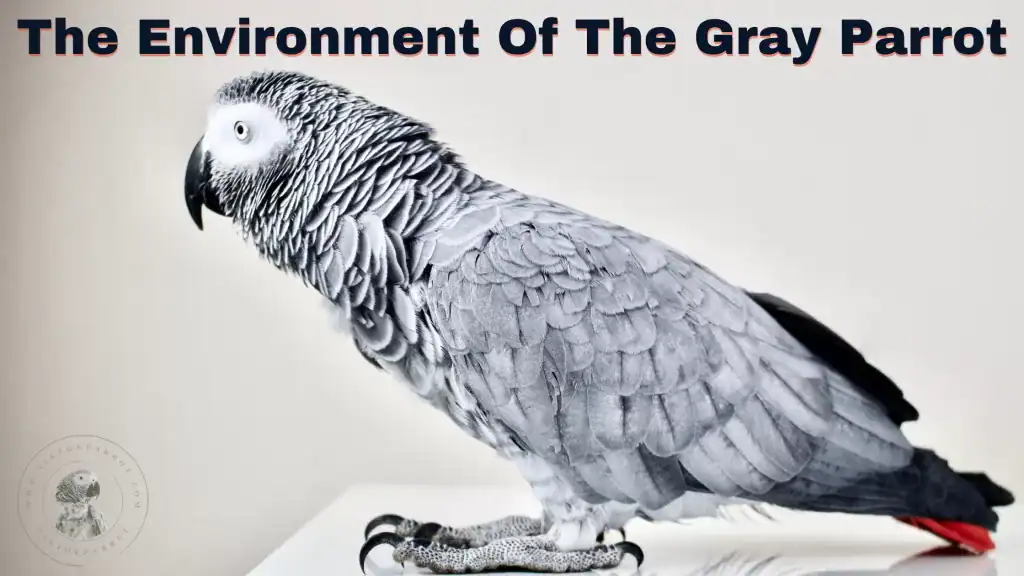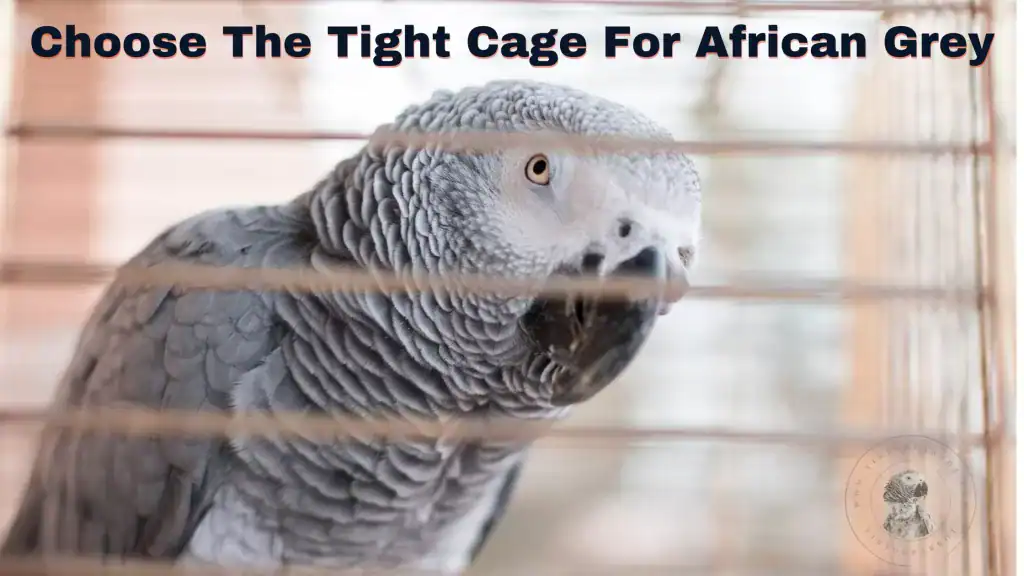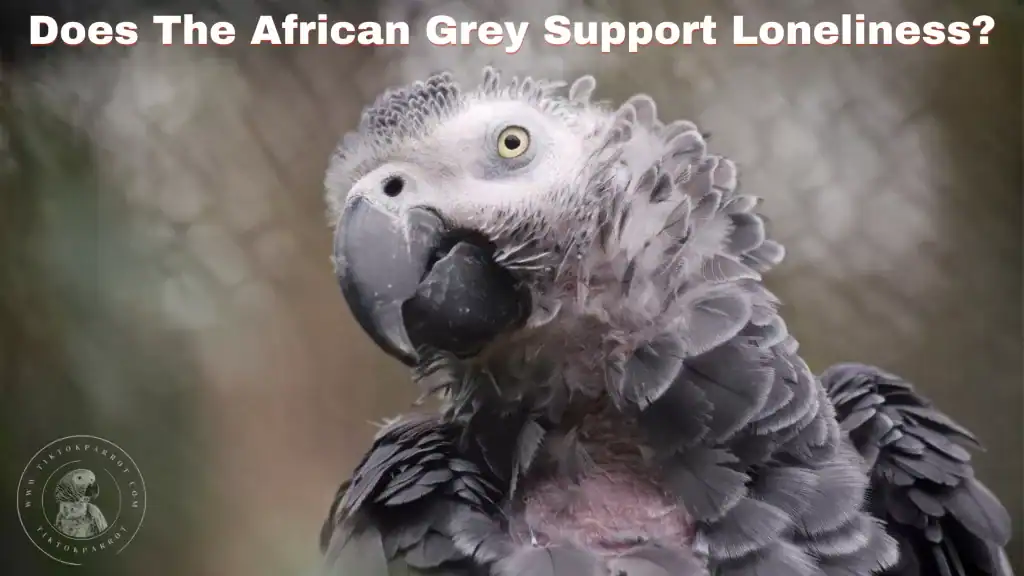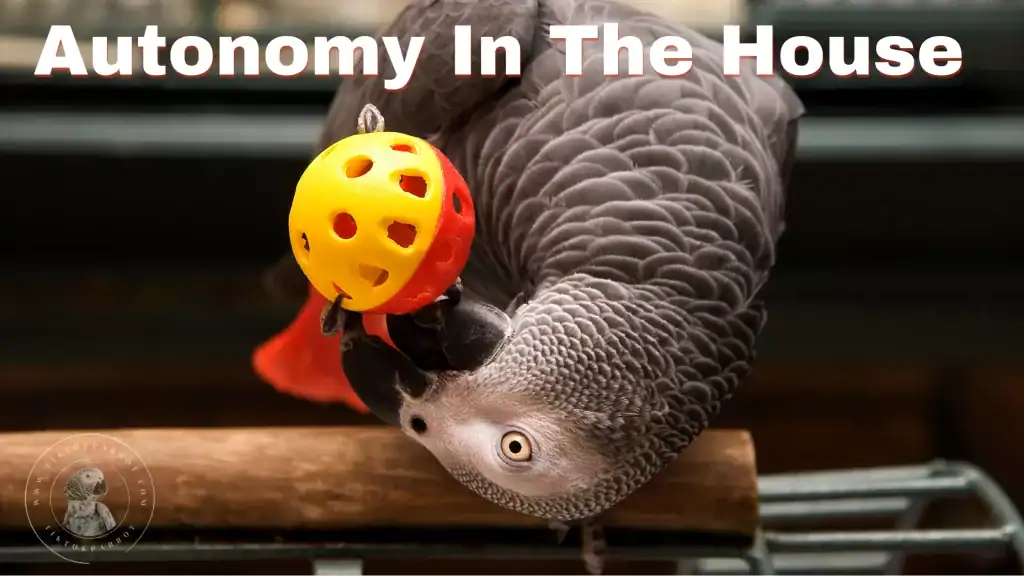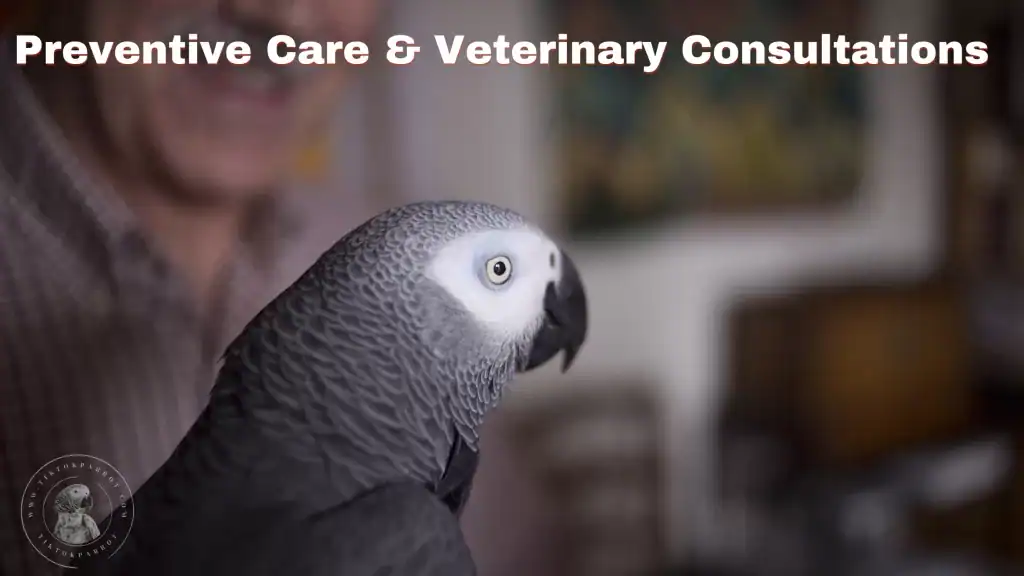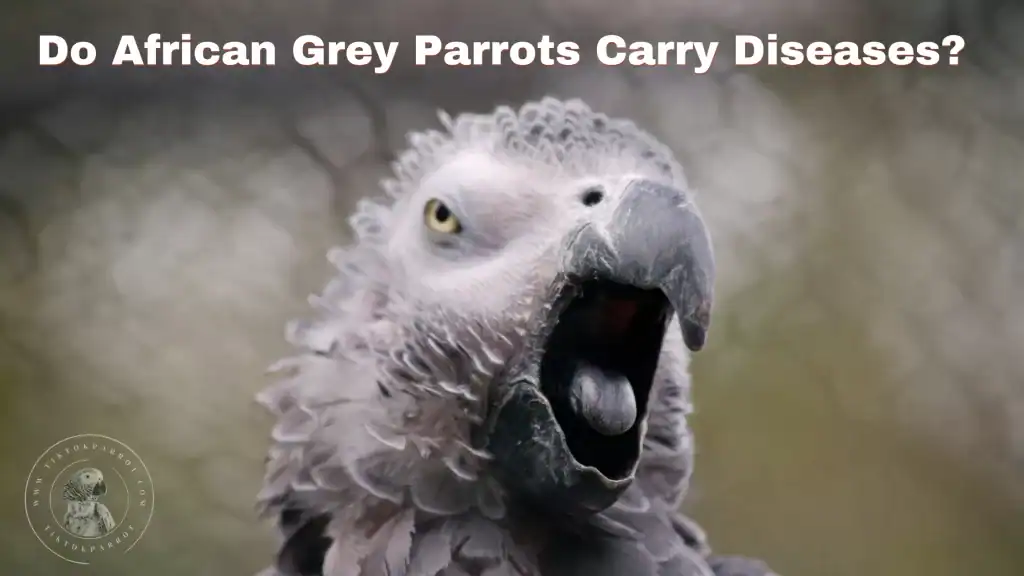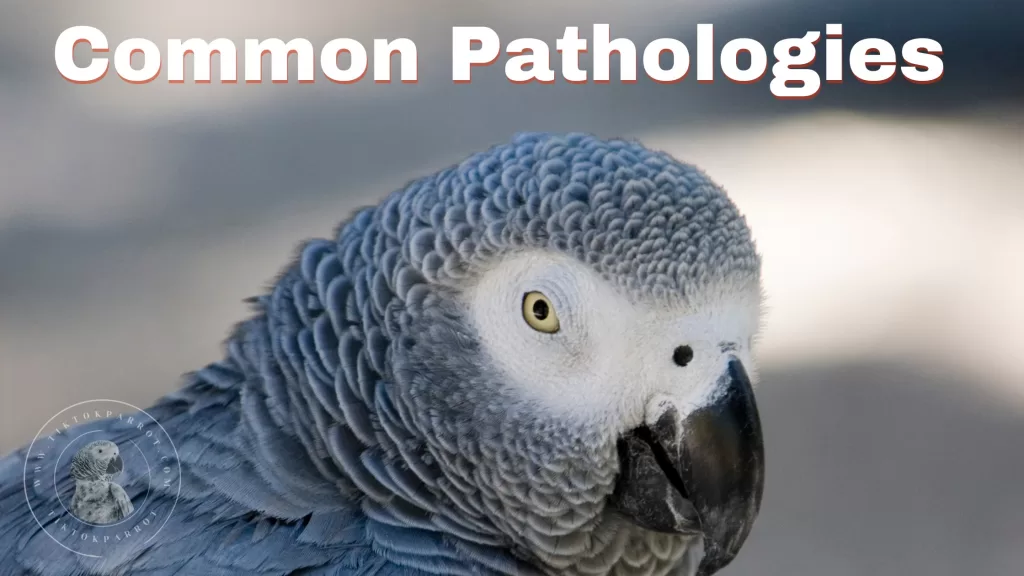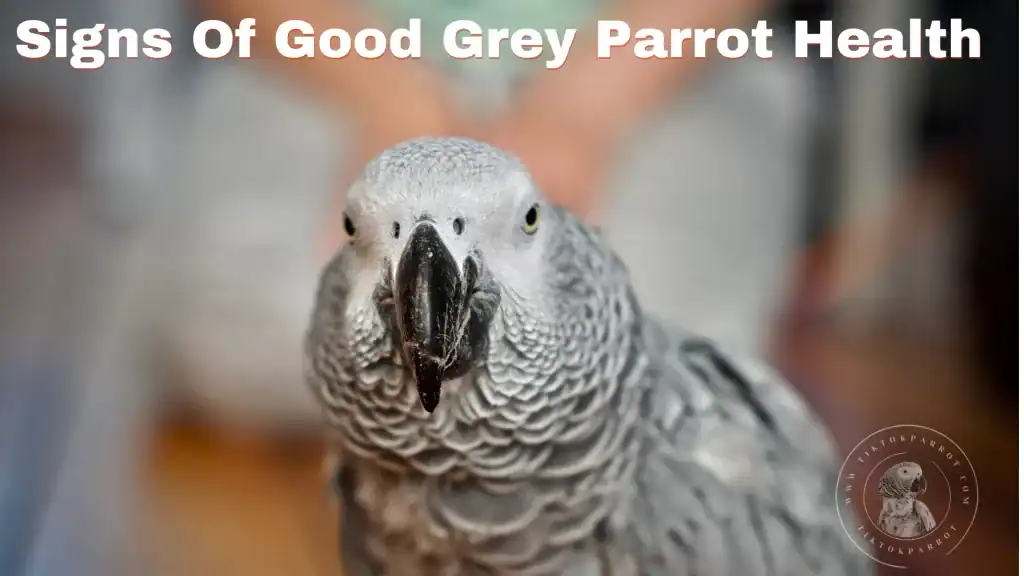African grey parrots are intelligent and social birds that can make great pets. However, it is important to be aware of the specific health needs of these birds and take steps to ensure they receive proper care.
Unlock the secrets to keeping your African Grey parrot in optimal health! Our must-read blog post reveals the most important facts about African Grey health that every owner needs to know. From potential diseases to dietary requirements, we’ve got you covered. Don’t miss out on these essential tips for a happy, healthy bird!
Here are some important facts about African grey health that you should know:
African grey parrots are prone to obesity: African grey parrots are prone to obesity, which can lead to several health problems. To prevent obesity, it is important to feed your African grey a healthy, balanced diet that consists of a variety of fresh fruits, vegetables, and a small number of high-quality pellets.
African grey parrots need regular veterinary care: Like all pets, African grey parrots need regular veterinary care to ensure they remain healthy. This includes regular check-ups, vaccinations, and blood tests to check for any underlying health issues.
African grey parrots are sensitive to respiratory infections: African grey parrots are prone to respiratory infections, which can be caused by many factors such as cold temperatures, poor air quality, or exposure to irritants. To prevent respiratory infections, it is important to keep your African grey’s living environment clean and well-ventilated.
African grey parrots can develop feather-plucking behaviors: Some African grey parrots may develop feather-plucking behaviors due to stress, boredom, or other underlying health issues. If your African grey is plucking its feathers, it is important to consult a veterinarian to determine the cause and develop a treatment plan.
African grey parrots need plenty of mental and physical stimulation: African grey parrots are intelligent and social birds that need plenty of mental and physical stimulation to remain healthy and happy. This includes providing them with a variety of toys and activities, as well as interacting with them regularly
The behavior of the African Grey
African grey parrots are known for their intelligence and ability to mimic human speech and sounds. They are social birds and can bond closely with their owners, but they also need plenty of mental and physical stimulation to prevent boredom and negative behaviors. Grey parrots may become destructive if they do not receive enough mental and physical stimulation, and they may also develop feather-plucking behaviors if they are stressed or unhappy.
In general, African grey parrots are known to be affectionate and curious, but they can also be moody and sensitive. It is important to establish a consistent routine for your African grey and provide them with a safe and comfortable environment. African grey parrots also require a lot of attention and interaction, so it is important to spend quality time with them regularly.
African grey parrots are sensitive to their surroundings and can become stressed by loud noises or changes in their environment. It is important to be mindful of this and try to create a calm and stable environment for your African grey. With proper care and attention, African grey parrots can make loving and rewarding pets.
Food and nutrition of a gray parrot
African grey parrots, including Gabonese greys, require a varied and balanced diet to maintain their health. A diet that is high in protein, fat, and fiber and low in sugar is ideal for African grey parrots. In general, the diet of an African grey parrot should consist of the following:
Pellets: Pellets should make up the majority of an African grey’s diet, as they provide a balanced source of nutrition. Choose a high-quality pellet that is formulated specifically for African grey parrots.
Fresh fruits and vegetables: African grey parrots should be given a variety of fresh fruits and vegetables as part of their diet. Some good options include apples, pears, bananas, carrots, and leafy greens.
Protein: African grey parrots need a source of protein in their diet, which can be provided through small amounts of cooked beans, tofu, or other plant-based protein sources. It is important to avoid feeding your African grey parrot meats, as they are not able to digest them properly.
Nuts and seeds: African grey parrots can be given small amounts of unsalted, unroasted nuts and seeds as a treat. However, these should not make up a significant portion of their diet as they are high in fat and can contribute to obesity.
It is important to avoid giving your African grey parrot sugary or salty foods, as these can be harmful to their health. It is also important to provide your African grey parrot with a consistent source of clean, fresh water.
The environment of the Gray Parrot
African grey parrots are sensitive to their environment and require a specific type of living space to maintain their health and well-being. Here are some important factors to consider when setting up the environment for an African grey parrot:
Size of the enclosure: African grey parrots need a spacious and well-ventilated enclosure. A minimum size of 6 feet by 6 feet by 6 feet is recommended, but larger is always better.
Temperature and humidity: African grey parrots should be kept in an environment with a consistent temperature between 70 and 85 degrees Fahrenheit and a humidity level of 40-60%.
Lighting: African grey parrots need access to natural sunlight or artificial light that provides full-spectrum lighting. This helps them to maintain their natural sleep patterns and keep their feathers healthy.
Perches and toys: African grey parrots need a variety of perches and toys to keep them mentally and physically stimulated. These should be placed in different areas of the enclosure to encourage movement and exploration.
Social interaction: African grey parrots are social birds and need regular interaction with their owners and other birds. It is important to spend quality time with your African grey parrot on a daily basis and provide them with opportunities to socialize.
Cleanliness: The enclosure and all of the accessories should be kept clean to prevent the build-up of bacteria and parasites. This includes cleaning the perches and toys regularly and changing the bedding and water dishes daily.
Choose the right cage for African grey parrot
When choosing a cage for an African grey parrot, it is important to consider the size, material, and location of the cage. Here are some things to consider:
Size: African grey parrots are active birds and need a spacious cage to move around and stretch their wings. A minimum size of 6 feet by 6 feet by 6 feet is recommended, but larger is always better.
Material: The cage should be made of a durable and non-toxic material, such as powder-coated metal or stainless steel. Avoid cages made of plastic or painted metal, as these can contain harmful chemicals that can be toxic to birds.
Location: The cage should be placed in a well-ventilated area that is free from drafts and direct sunlight. Avoid placing the cage near windows or doors, as this can expose the bird to sudden temperature changes.
Bar spacing: The bars of the cage should be spaced close enough together to prevent the bird from escaping or getting stuck, but wide enough to allow the bird to grip them comfortably. A bar spacing of 1/2 to 3/4 inch is generally recommended for African grey parrots.
Accessibility: The cage should be easily accessible for feeding, cleaning, and interacting with the bird. It should also have a removable tray or grate for easy cleaning.
Safety features: Look for a cage that has safety features such as a lockable door and non-toxic finishes.
By choosing the right cage for your African grey parrot, you can provide them with a safe and comfortable environment to live in.
The right light for your parrot
Proper lighting is important for the health and well-being of African grey parrots. African grey parrots need access to natural sunlight or artificial light that provides full-spectrum lighting. This helps them to maintain their natural sleep patterns and keep their feathers healthy.
Here are some things to consider when choosing the right lighting for your African grey parrot:
Natural sunlight: African grey parrots need access to natural sunlight, which provides them with the full spectrum of light they need. If possible, place the bird’s enclosure near a window that provides natural sunlight. However, be mindful of the intensity of the sunlight and avoid placing the cage in direct sunlight, as this can cause the cage to become too hot.
Artificial light: If natural sunlight is not available, you can provide your African grey parrot with artificial light. Look for a full-spectrum light bulb that simulates natural sunlight, such as a white fluorescent or LED bulb. The light should be placed close to the bird’s enclosure, but not directly over it to avoid overheating.
Lighting schedule: African grey parrots need a consistent lighting schedule to maintain their natural sleep patterns. This means providing them with consistent levels of light and darkness throughout the day.
Light intensity: The intensity of the light should be adjusted based on the time of day and the season. In the summer, the light should be less intense, while in the winter it should be more intense to compensate for shorter days.
By providing your African grey parrot with the right lighting, you can help them to maintain their natural sleep patterns and keep their feathers healthy.
Does the African grey support loneliness?
African grey parrots are social birds that need regular interaction and attention to remain healthy and happy. They are known to bond closely with their owners and can become distressed if they are left alone for long periods.
Prolonged loneliness can lead to negative behaviors in African grey parrots, such as feather-plucking, self-mutilation, and excessive vocalization. It can also negatively impact their physical and mental health.
To prevent loneliness in African grey parrots, it is important to provide them with plenty of social interaction and attention. This means spending quality time with your African grey parrot daily and providing them with plenty of opportunities to socialize with other birds and people.
If you are unable to spend a significant amount of time with your African grey parrot, it may be a good idea to consider adopting a second African grey parrot as a companion. This can help to alleviate loneliness and provide your African grey parrot with the social interaction they need.
In conclusion, African grey parrots do not tolerate loneliness well and require regular social interaction and attention to remain healthy and happy.
Autonomy in the house
African grey parrots are intelligent and social birds that need plenty of mental and physical stimulation to prevent boredom and negative behaviors. Providing your African grey parrot with some degree of autonomy in their environment can help to meet their needs for mental and physical stimulation.
Here are some ways to provide your African grey parrot with autonomy in their living environment:
Provide plenty of toys and activities: African grey parrots need a variety of toys and activities to keep them mentally and physically stimulated. This includes providing them with a variety of perches, swings, ladders, and toys that they can play with and interact with.
Allow your African grey parrot to explore: African grey parrots are curious and enjoy exploring their environment. Consider providing them with a bird-safe room or area where they can fly and explore safely.
Encourage foraging behavior: African grey parrots are naturally foraging animals and enjoy finding and interacting with their food. Consider hiding small amounts of food around their enclosure for them to find and providing them with foraging toys.
Provide opportunities for socialization: African grey parrots are social birds and need regular interaction with their owners and other birds. Provide your African grey parrot with opportunities to socialize with you and other birds to prevent loneliness and boredom.
By providing your African grey parrot with some degree of autonomy in its living environment, you can help to meet its needs for mental and physical stimulation and prevent negative behaviors.
Preventive care and veterinary consultations
Preventive care and regular veterinary consultations are important for the health and well-being of African grey parrots. Regular check-ups can help to identify and address any underlying health issues before they become serious, and preventive care measures can help to prevent health problems from occurring in the first place.
Here are some preventive care measures you can take to ensure the health of your African grey parrot:
Provide a healthy diet: Feed your African grey parrot a varied and balanced diet that consists of a variety of fresh fruits, vegetables, and a small number of high-quality pellets. Avoid giving your African grey parrot sugary or salty foods, as these can be harmful to their health.
Keep the enclosure clean: Keep the enclosure and all of the accessories clean to prevent the build-up of bacteria and parasites. This includes cleaning the perches and toys regularly and changing the bedding and water dishes daily.
Provide proper lighting: African grey parrots need access to natural sunlight or artificial light that provides full-spectrum lighting. This helps them to maintain their natural sleep patterns and keep their feathers healthy.
Protect against respiratory infections: African grey parrots are prone to respiratory infections, which can be caused by some factors such as cold temperatures, poor air quality, or exposure to irritants. To prevent respiratory infections, it is important to keep your African grey’s living environment clean and well-ventilated.
Regular veterinary care: Like all pets, African grey parrots need regular veterinary care to ensure they remain healthy. This includes regular check-ups, vaccinations, and blood tests to check for any underlying health issues.
By taking preventive care measures and regularly consulting with a veterinarian, you can help to ensure the health and well-being of your African grey parrot.
Do African grey parrots carry diseases?
Yes, like all animals, African grey parrots can potentially carry diseases. Some of these diseases can be transmitted to humans, so it is important to take appropriate precautions when interacting with these birds.
One of the most well-known diseases associated with African grey parrots is psittacosis, also known as parrot fever. This is a bacterial infection that can be transmitted to humans through contact with infected birds or their feces, feathers, or respiratory secretions. Symptoms in humans can range from mild flu-like symptoms to severe pneumonia.
In addition to psittacosis, African greys can also potentially carry other diseases such as salmonella, avian influenza, and chlamydiosis. These diseases can be transmitted to humans through contact with infected birds or their feces, so it is important to practice good hygiene when handling these birds or cleaning their cages.
To minimize the risk of disease transmission, it is recommended to have regular veterinary checkups for pet birds, wash hands thoroughly after handling them, and avoid contact with their feces or other bodily fluids. It is also important to properly clean and disinfect cages and other equipment regularly.
Common pathologies in Africans grey parrots
African grey parrots are prone to a number of health issues, some of which can be serious if not properly treated. Here are some common pathologies in African grey parrots:
Obesity: African grey parrots are prone to obesity, which can lead to some health problems such as liver disease, heart disease, and respiratory problems. To prevent obesity, it is important to feed your African grey a healthy, balanced diet that consists of a variety of fresh fruits, vegetables, and a small number of high-quality pellets.
Respiratory infections: African grey parrots are prone to respiratory infections, which can be caused by some factors such as cold temperatures, poor air quality, or exposure to irritants. Symptoms of respiratory infections include coughing, sneezing, nasal discharge, and difficulty breathing.
Feather-plucking: Some African grey parrots may develop feather-plucking behaviors due to stress, boredom, or other underlying health issues. If your African grey is plucking its feathers, it is important to consult a veterinarian to determine the cause and develop a treatment plan.
Nutritional deficiencies: African grey parrots require a balanced and varied diet to maintain their health. Nutritional deficiencies can occur if the diet is not balanced or if the bird is not receiving enough nutrients. Symptoms of nutritional deficiencies can include weakness, weight loss, and feather loss.
Bacterial infections: African grey parrots are prone to bacterial infections, which can affect the respiratory, gastrointestinal, and genitourinary systems. Symptoms of bacterial infections can include fever, lethargy, loss of appetite, and diarrhea.
By being aware of these common pathologies and taking preventive measures, you can help to ensure the health and well-being of your African grey parrot. If you suspect that your African grey parrot is experiencing any of these health issues, it is important to consult a veterinarian for proper diagnosis and treatment.
Signs of good grey parrot health
There are a number of signs that can indicate good health in an African grey parrot. Here are some signs to look for:
Bright, clear eyes: African grey parrots should have bright, clear eyes with no discharge or swelling.
Smooth, glossy feathers: African grey parrots should have smooth, glossy feathers with no visible signs of damage or disease.
Active and alert: African grey parrots should be active and alert, with a good appetite and no lethargy.
Normal breathing: African grey parrots should have normal breathing with no difficulty or rapid breathing.
Normal droppings: African grey parrots should have normal droppings that are solid and well-formed, with no visible signs of blood or diarrhea.
Normal behavior: African grey parrots should exhibit normal behavior, including social interaction, playing, and foraging.
If you notice any changes in your African grey parrot’s appearance or behavior, it is important to consult a veterinarian to determine the cause and determine the appropriate course of action. By paying attention to these signs of good health, you can help to ensure the well-being of your African grey parrot.
You can read more about Common Health Problems of African Greys and Signs of Possible Illness in an African Grey parrot and Mystery of African Grey Parrot Proventricular Dilatation Disease (PDD)
If you found this blog helpful, It would be great if you could share it with your family and friends who might find it useful as well.
For more useful content about African Grey parrots, you can subscribe my site with your email to get notification upon publishing a new blog, the subscribe box you can see on the right side of this page. Also if you get an alert on your web browser while browsing my site, allow it and that will also give you an alert whenever I publish a new blog.
You might like this:
African Grey Parrot Male or Female? (Determine Gender of African Grey)
Types of African Grey Parrots
African Grey Parrot Price & Owning Cost
The Surprising Benefits of Owning an African Grey Parrot
African Grey Parrots as Pets, The Pros and Cons of Owning One
What To Do If Your Parrot Is Choking, something stuck in the throat?
Are African Grey Parrots Smarter Than Dogs?
Stay safe and much love !



